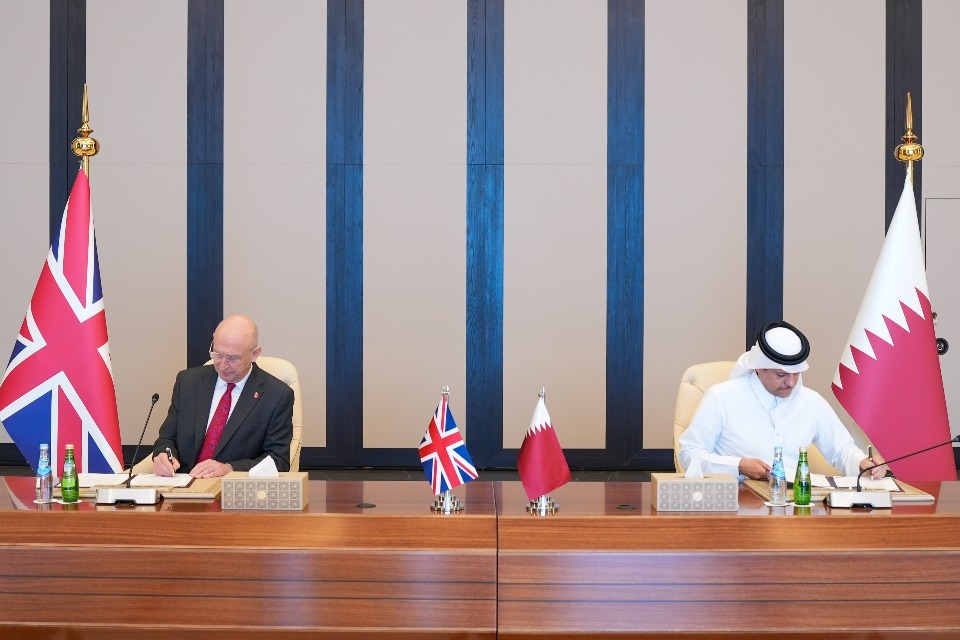


The enhanced Defence Assurance Arrangement signed on 30th October is a formalisation of deeper military cooperation: interoperability across land, sea and air; joint threat-scenario planning; and mutual commitments to co-ordinated defence efforts. But more than the ink on the page, this agreement underlines a recognition of evolving global balance and a desire by the UK to remain a pivotal actor in the Middle East’s security canvas.
In recent years, Britain’s strategic ambitions beyond Europe have often seemed tentative. The “tilt to the Indo-Pacific”, the post-Brexit defence posture, and constrained budgets have all diluted the clarity of London’s global purpose. But this new pact with Qatar offers a more muscular narrative: the United Kingdom can still mobilise strategic partnerships not merely as transactional arrangements but as long-term pillars of influence.
Qatar is no passive partner here. As a wealthy Gulf state with outsized geopolitical clout and deep ties to defence procurement, it provides London with both utility and future leverage. UK–Qatar economic interdependence is already substantial: Britain’s exports to the Gulf state alone reached £4.4 billion in 2025, while Qatari investment into the UK is estimated to top £40 billion. The alignment is as much about access, influence and technology transfer as about boots on the ground.
Moreover, this defence agreement builds on the success of the UK–Qatar Joint Typhoon Squadron — the first joint fighter jet squadron between Britain and another state since the Second World War.That squadron has already served as both a political message and operational template. Now London and Doha seek to broaden that collaboration in airspace control, early warning, maritime security and training.
Diplomacy is, in large measure, a language of signals. Seen through that lens, this pact tells multiple audiences something.
To regional players — Iran, Saudi Arabia, Turkey — it broadcasts that Britain still has a writ east of the Mediterranean. It says that London is willing and able to invest in the security architecture of the Gulf, not just as a traditional arms supplier but as a committed strategic ally.
To Washington and Paris, it offers a reminder that Britain, despite the shakes and fissures of the Brexit era, retains tactical relevance beyond Europe. The UK is not dependent on U.S. cover in the Gulf but wants to remain a serious partner in the region’s security ecology — a role that may become more critical if U.S. attention drifts.
And to domestic audiences, it affirms a doctrine: that defence is not an inward matter. London is making long bets on partnerships, ensuring its forward posture maintains weight and legitimacy. The government will hope the arrangement helps sustain the UK arms and aerospace sectors, reinforcing job creation and industrial synergies at home — an explicit goal of the press release.
Yet grand strategy seldom survives first contact with reality. This new agreement is not without its dangers.
First, there is the question of focus. Britain already juggles commitments in Europe’s security, North Atlantic affairs, the Indo-Pacific tilt and now deeper Gulf engagement. Stretch too thin, and the risk is a lopsided defence posture — ambitious on paper but sluggish in execution.
Second, Gulf politics are fraught with balancing acts. Qatar has cultivated ties across the arc of regional fault lines — from the U.S. to Iran, from Turkey to the GCC bloc. Deepening military ties with one state can strain relationships with others, especially in a region where shifting alliances, proxy wars and competing agendas are the norm.
Third, security pacts are only as good as the commitment behind them. Interoperability is expensive; joint planning demands trust, command compatibility, shared doctrine — and sometimes shared risk. Defence industries, procurement delays, political turnover and divergent threat perceptions can all erode the momentum of agreements.
The optics of proximity matter. Critics might ask how much the UK should embed itself militarily in a region so distant — and whether such investment distracts from core threats closer to home.
The new UK–Qatar defence deal is more than a bilateral military pact — it is a statement of direction. In one stroke, Britain signals both ambition and relevance in one of the globe’s trickiest theatres. But it must now demonstrate that the prose can survive in practice: that planning yields interoperability, that ministerial rhetoric yields joint deployments, and that geopolitical aspiration doesn’t buckle under the weight of reality.
If London and Doha can translate this agreement from paper to posture, they will have carved a durable underpinning for UK influence in the Gulf for decades to come — and reasserted Britain’s claim to global strategic agency. The opportunity is large; the execution must match.
A Stronger Britain: John Healey Outlines a Bold Path to Restore Military Readiness and Confidence
Trump’s Gaza Deal: Moment of Hope or Just Another Pause in a Long War?